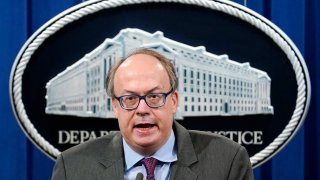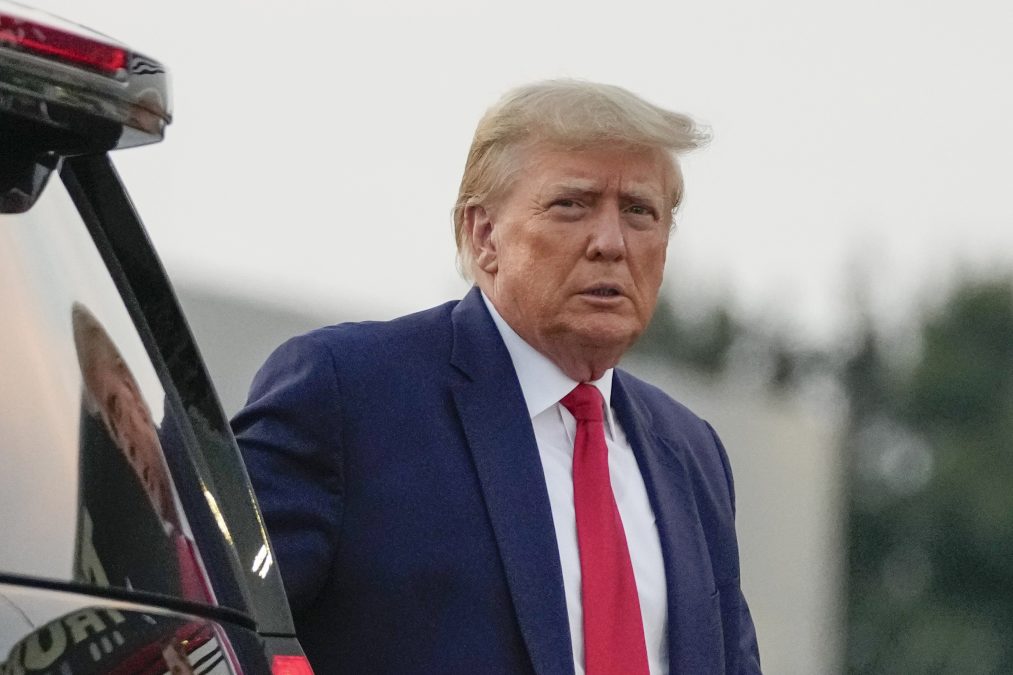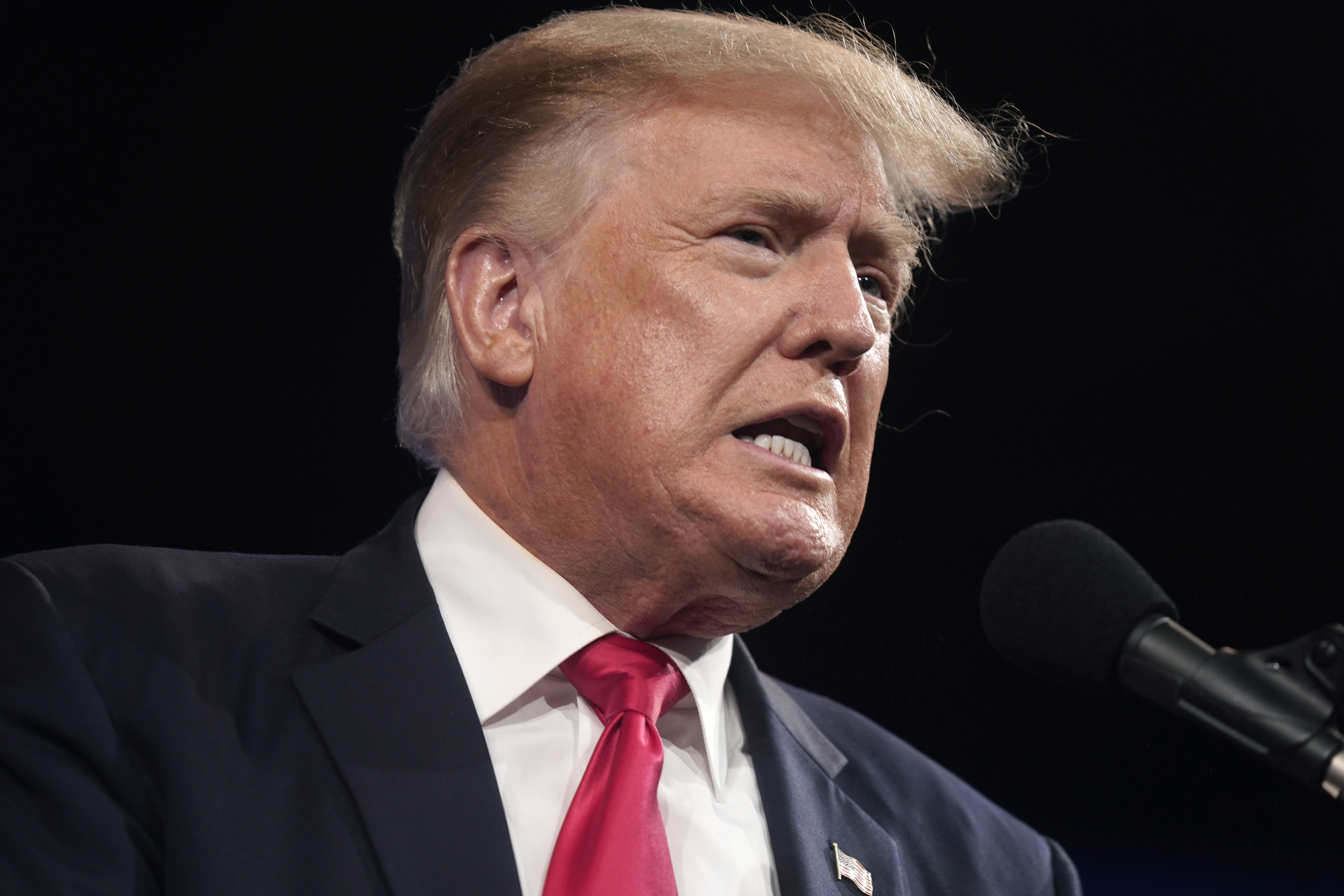
Former Justice Department official Jeffrey Clark was acting within the scope of his official duties when he wrote a letter expressing concern about alleged problems with the 2020 election in Georgia, his lawyer said Monday as he sought to move charges against Clark to federal court.
Clark is charged along with former President Donald Trump and 17 others, accused of participating in a wide-ranging scheme to overturn Democrat Joe Biden’s presidential election victory and keep the Republican Trump in power. All 19 defendants have pleaded not guilty.
U.S. District Judge Steve Jones presided over the hearing on Clark's attempt to move his case to federal court from Fulton County Superior Court. Jones earlier this month rejected a similar effort from Trump White House chief of staff Mark Meadows. Unlike Meadows, who testified at his own hearing last month, Clark was not in court as his lawyer argued on his behalf.
Clark's attorneys last week submitted a declaration to the court in which he outlined his service in the Justice Department. Jones on Monday said he wouldn't consider that statement after prosecutors raised concerns about not being able to question Clark about any of his assertions.
Get Tri-state area news and weather forecasts to your inbox. Sign up for NBC New York newsletters.
The indictment says Clark wrote a letter after the November 2020 election that said the Department of Justice had “identified significant concerns that may have impacted the outcome of the election in multiple States, including the State of Georgia” and asked top department officials to sign it and send it to Georgia Gov. Brian Kemp and state legislative leaders.
Clark had been told by top department officials that the central claim in his letter was false, that he didn’t have the authority to make that claim and that it was outside the department’s role, prosecutors argued.
Harry MacDougald, an attorney for Clark, characterized the situation as a disagreement among lawyers. It is not within the authority of a state prosecutor to peer into confidential deliberations at the Justice Department or the White House and “pick a winner and a loser and indict the loser," he told the judge.
Jones asked MacDougald if someone who was holding the two roles that Clark had at the time — assistant attorney general overseeing the environment and natural resources division and acting assistant attorney general over the civil division — had the authority to go straight to the president without going through his department superiors.
"If he’s contacted by the president, yes," MacDougald responded.
MacDougald referenced a 2021 meeting at the White House during which Trump asked about the letter Clark had written but was ultimately convinced by others not to have it sent to Georgia officials, saying, “The theory of our case is that the president ratified this conduct in the Jan. 3 meeting.”
MacDougald dismissed the notion that federal authorities have no role in state elections, pointing out that the Department of Justice was already looking into election fraud allegations before Clark got involved.
“The Rubicon had already been crossed,” MacDougald said.
Prosecutors had subpoenaed Jody Hunt, who served as head of the Justice Department civil division before Clark. Under questioning by prosecutor Anna Cross, Hunt testified that the civil division had no role in investigating election interference or election fraud, saying that would fall to the civil rights division or the criminal division.
He also described a department memo that says communications between the agency and the White House must go through the attorney general, the deputy attorney general or the associate attorney general. That is meant to avoid people being asked to do things outside their responsibilities and to avoid conflicting requests, he said.
Another prosecutor, Donald Wakeford, argued that Clark had presented no evidence that his actions were authorized by Trump or even that Trump had the authority to weigh in on these matters. Clark also provided no explanation of what federal law he was trying to enforce or what authority or appropriate expertise he had to be looking into allegations of problems with the election, Wakeford said.
“This case does not involve federal authority,” Wakeford said, arguing for the case to be returned to the state court. “There is no federal authority here to protect.”
Clark is one of five defendants seeking to move his case to federal court, and Trump has signaled that he may join them. Although the ruling against Meadows could signal an uphill battle for Clark and the others, Jones made clear he would assess each case individually. The judge's refusal to accept Clark's sworn declaration could indicate to others that they should expect to appear and testify.
Meadows, who is appealing Jones’ ruling, took the stand and testified for nearly four hours last month, answering questions from his own lawyer, a prosecutor and the judge. He talked about his duties as Trump’s last chief of staff and sometimes struggled to recall the details of the two months following the November 2020 election.
Jones said he would try to rule quickly. His decision in the Meadows case came a week and a half after the hearing.
The practical effects of moving to federal court would be a jury pool that includes a broader area than just overwhelmingly Democratic Fulton County and a trial that would not be photographed or televised, as cameras are not allowed inside federal courtrooms. But it would not open the door for Trump, if he’s elected again in 2024, or another president to issue pardons because any conviction would still happen under state law.
Clark was identified as one of six unnamed co-conspirators in an indictment filed by special counsel Jack Smith charging Trump with seeking to illegally overturn the results of the 2020 election and block the peaceful transfer of power to Biden. He has not been charged in that case.
Federal agents searched Clark’s Virginia home in the summer of 2022, and video emerged of him standing in his driveway, handcuffed and wearing no pants.



